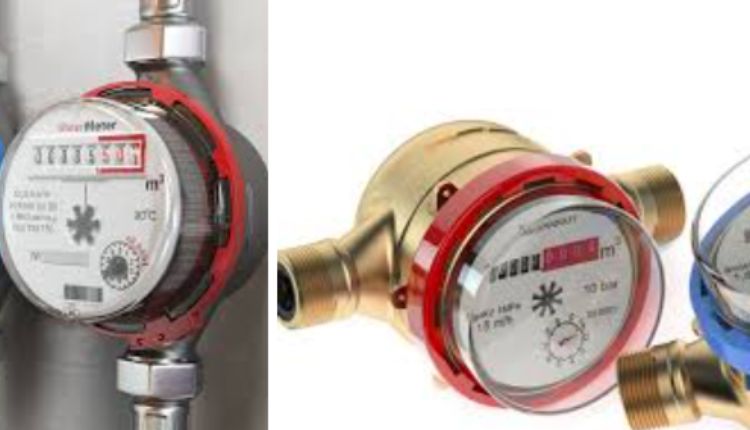Water Meters for Condominiums: A Smarter Way to Manage Utility Costs
Water is one of the most essential yet overlooked resources in multi-unit residential properties. In many condominiums across Canada and the United States, water billing is still done on a shared basis, where the total usage is divided among all residents regardless of individual consumption. This outdated model often leads to frustration, wasted water, and increased operating costs. Fortunately, a growing number of condominium boards and property managers are recognizing the power of individual water meters for condominiums and how they can reshape water use, billing, and overall management.
Why the Traditional Water Billing Model Falls Short
When a building is served by a single master water meter, there is no way to know how much water each unit uses. One family could be very conservative with water use, while another may leave taps running unnecessarily—but both pay the same portion of the bill. This lack of accountability often leads to inflated water usage across the board. With no direct consequences for excessive consumption, there’s little incentive to change habits or report leaks. Over time, this inefficiency drives up costs for everyone and can lead to disputes among residents and the board.
How Water Meters for Condominiums Change the Game
Installing individual water meters in each condominium unit puts the power back into the hands of residents. With submetering in place, every household is billed based on their actual water use. This creates a culture of accountability and conservation, where each resident is responsible for managing their own water consumption. From a management perspective, it allows for more transparent budgeting and helps stabilize condo fees by removing unpredictable utility fluctuations from shared expenses.
Financial Benefits for Property Owners and Residents
One of the most immediate advantages of water submetering is cost savings. Studies have shown that when residents are directly responsible for their water usage, consumption typically decreases by 15% to 30%. This leads to lower overall water bills for the entire building. In addition, maintenance costs can be reduced, as residents who monitor their water usage are more likely to detect and report leaks early. Condo boards no longer have to carry the burden of unpredictable water bills, and residents appreciate the fairness of paying only for what they use.
Supporting Sustainable Living and Environmental Responsibility
Water conservation has become a growing priority in North America, especially in cities where population growth is putting pressure on municipal systems. By implementing individual water meters for condominiums, property owners are making a meaningful contribution to sustainability efforts. Reduced water usage helps protect local water sources, eases demand on wastewater treatment systems, and aligns with broader environmental goals. Many residents today are environmentally conscious and actively seek out homes in communities that prioritize resource conservation.
Compliance, Incentives, and Long-Term Value
In some jurisdictions, local governments are beginning to encourage or even require submetering in multi-unit residential buildings. By acting proactively, condominium boards can position their properties ahead of potential regulatory changes. In certain areas, there are even financial incentives or rebates available for installing water submetering systems. Beyond compliance, properties that offer individual water metering tend to be more attractive to buyers and renters. Prospective residents often see submetered units as more transparent, fair, and modern—a distinct advantage in competitive real estate markets.
Advanced Technology Makes It Easier Than Ever
Thanks to advancements in technology, installing water meters for condominiums has become more accessible, even for older buildings. Modern systems use wireless communication and smart meters that send real-time usage data to cloud-based platforms. This eliminates the need for manual meter readings and streamlines the billing process. Companies like Water Conservation Company Ltd. specialize in these installations, offering full-service solutions that include equipment, setup, monitoring, and even billing support. Their expertise ensures a smooth transition with minimal disruption to daily operations.
How Water Metering Improves Community Relationships
Beyond the numbers and technical benefits, water metering helps create a sense of fairness and harmony among residents. In master-metered buildings, disputes about high condo fees or unfair utility splits can cause tension. With individual metering, those disputes are eliminated. Each resident sees exactly what they use and pays accordingly. This transparency builds trust between residents and management and contributes to a healthier, more cooperative community environment.
Is It Time to Make the Switch?
The question is no longer whether water meters for condominiums are a good idea—it’s whether you can afford not to install them. The financial, environmental, and operational advantages are clear. With experienced partners like Water Conservation Company Ltd. available to guide the process from start to finish, the transition is simpler than many assume. As condominium boards look to reduce expenses, increase property value, and provide better service to residents, water submetering stands out as a smart, strategic move.
Final Thoughts on the Future of Water Use in Condominiums
Water meters for condominiums are more than a utility upgrade. They represent a shift toward a fairer, smarter, and more sustainable way of living. By giving residents control over their water usage and aligning costs with actual consumption, condominiums can achieve greater efficiency, lower costs, and improved resident satisfaction. As the demand for environmentally responsible housing grows, individual water metering is no longer a luxury—it’s a necessity for forward-thinking condominium seoclerk communities in both Canada and the United States.
